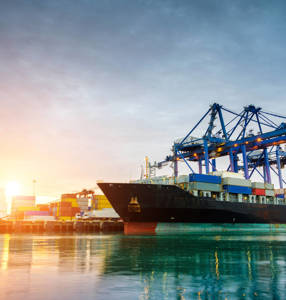Find out how to export goods from the UK
Selling goods and services overseas increases business productivity and growth and has a big impact on regional and national economies. With international relationships under the spotlight, now is the time for the UK to grasp opportunities worldwide.
Export goods from the UK
- Discover the CBI's Make the UK an Exporting Superpower
- The MyCBI portal is regularly updated with the latest updates from the CBI’s International team and overseas offices.
Institute of Export and International Trade resources
Other Resources
Depending on your needs as a business there are a wide range of support services in the public and private sector. Some useful resources:
- Evergreen content published on social media: If you want any of these assets separately then please do let me know.
- GREAT.gov.uk is your first port of call for advice on exporting, including ‘how to’ guides, finding your local DIT adviser, information on events to attend, and links to wider resources.
- The Export Support Service (ESS) is a government helpline offering practical advice about exporting to specific markets, and will route through to relevant government officials where necessary.
- UK Export Finance (UKEF) is a government-led facility offering financial products for companies to fulfil export orders where the private sector is unable to do so.
- The Department for International Trade (DIT) monitor this page to to understand new opportunities for your business.
- Export Academy - DIT
Exporting goods to the EU
The UK-EU Trade and Cooperation Agreement (TCA) came into effect on 1 January 2021. GB imports from the EU have permanently changed under the UK-EU TCA, with new customs processes, administration and checks and businesses will need to prepare for the significant changes in their operations.
How have the rules for exporting to the EU changed?
Zero tariffs and quotas on goods
- The UK and the EU agreed to zero tariff and zero quota trade on goods, meaning that businesses will not face costly tariffs. However, to qualify for tariff-free access, firms will need to ensure goods meet Rules of Origin requirements as set out in the treaty, ensuring these goods meet the ‘local’ qualification criteria.
Rules of Origin
- Access to the zero tariffs and quotas will depend on whether the goods meet the Rules of Origin required in the agreement to qualify as ‘local’. Businesses will have to identify the full origin of their goods as well as provide additional paperwork in order to qualify. However, the EU and UK have jointly agreed additional flexibility in collecting documentary evidence to prove origin during the first year, to allow them to benefit from the preferences despite the little time available between conclusion and application of the agreement. Further detail on this flexibility will be published imminently.
Customs and trade facilitation
- The agreement will require customs declarations and paperwork for businesses to process the movement of goods. It does provide for mutual recognition of the Authorised Economic Operator Safety & Security scheme, allowing for streamlined customs procedures for traders already registered.
- Sanitary and phytosanitary (SPS) border checks will be required for trade of live animals and products of animal origin, meaning that agri-food traders will meet with extra costs and burden.
Conformity assessments
- The agreement only provides limited scope for mutual recognition of conformity assessments. This means that with the exception of a few instances, goods will have to undergo two sets of conformity assessments rather than one if a business is seeking to place a product on both the UK and EU markets, thereby creating additional costs and complexity for businesses.
- However, in specific sectors such as medicines, automotive, organics, wine, and chemicals, the UK and the EU have agreed to streamline conformity assessments (see our regulated goods section for more details).
What impact could the changes to exporting rules have on business?
- The additional customs checks at the EU border have the potential to cause delays at ports if processes fail or are not followed correctly by transporters. These delays will have knock-on impacts on supply chains – and are difficult for perishable products in particular - with all products of animal origins and plants having to enter the EU via a point of entry with a Border Inspection Post.










